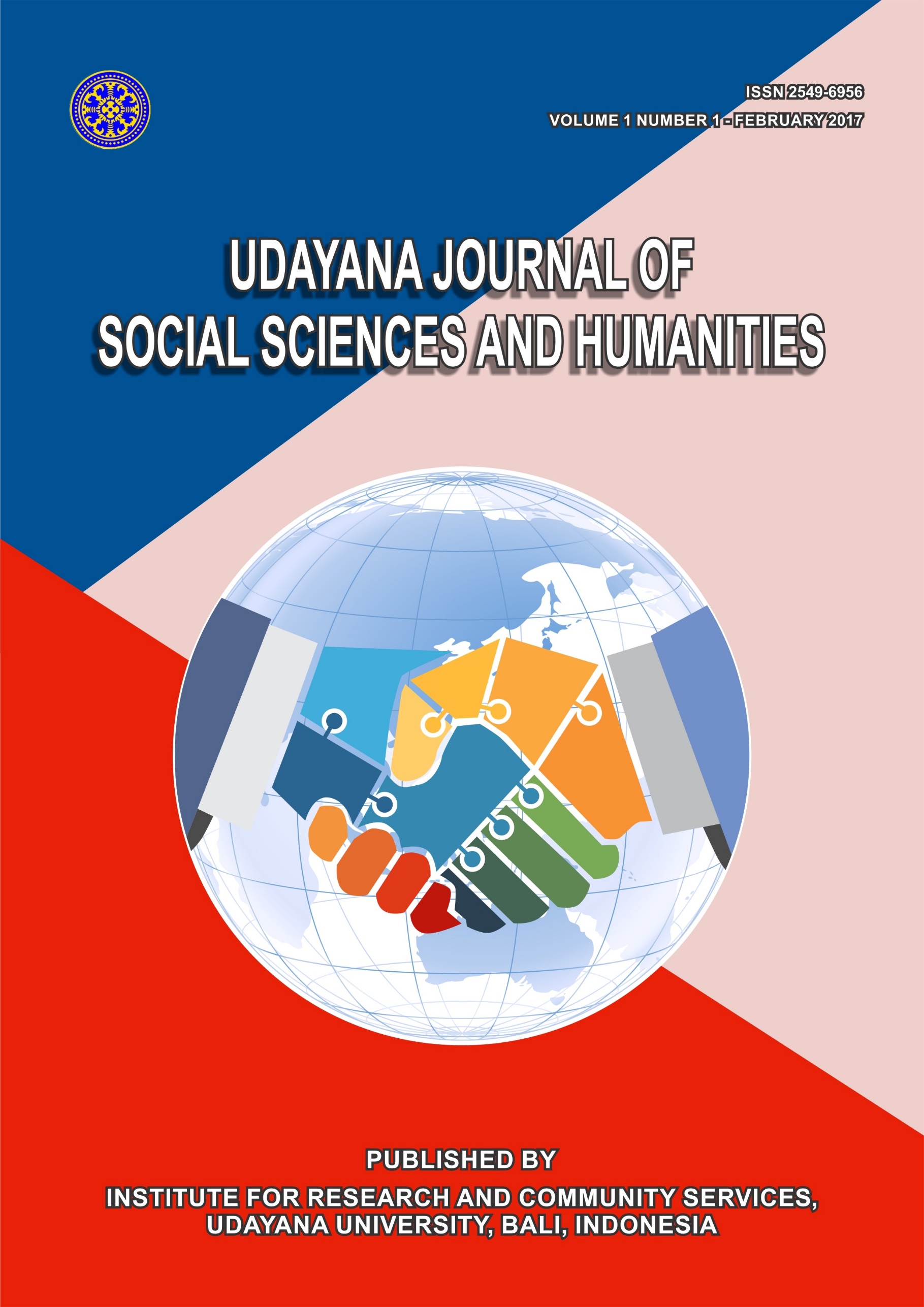The System of Balinese Language Inheritance at International Tourism Destinations in Bali
Abstract
This study aims at finding out and analyzing the Balinese language preservation model by Balinese people, especially the young generation in tourism destinations, namely Sanur, Kuta, Ubud, Tanah Lot and Lovina. The research focuses on the following: 1) the patterns of usage of the language, 2) attitude of the younger generation towards Balinese language and 3) system of inheritance of mother tongue on those study sites. Data was obtained through observation and distribution of questionnaires, along with interview and note-taking techniques. Research samples are children and adolescents born in Bali and speak Balinese as their first language, and quota technique is applied to set the number of members for each group, i.e. 25 people. The data was analyzed using the theory of language choice and the theory of language change. The results show that the younger generation have positive attitude towards their native language, i.e. Balinese, and they still use it in all domains, especially within families and neighborhoods. The system of Balinese language inheritance occurred in both formal and informal ways. The formal way is through a medium to reinforce Balinese language as an obligatory lesson taught from elementary to high schools/vocational schools, publishing Regional Legislation implemented in a Decree and reflected in the curriculum. The informal way is through Balinese language revitalization: Balinese language succession to the next generation, Balinese language development by means of conducting research, seminars & congress. The development is aligned with the progress of science and technology, the utilization of Balinese language by using it as an inter-ethnic communication medium in everyday life and cultural activities, as well as the utilization of Balinese language on print media, i.e. Bali Post in columns named Orti Bali and Mediaswari.






